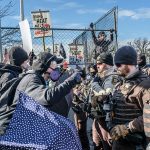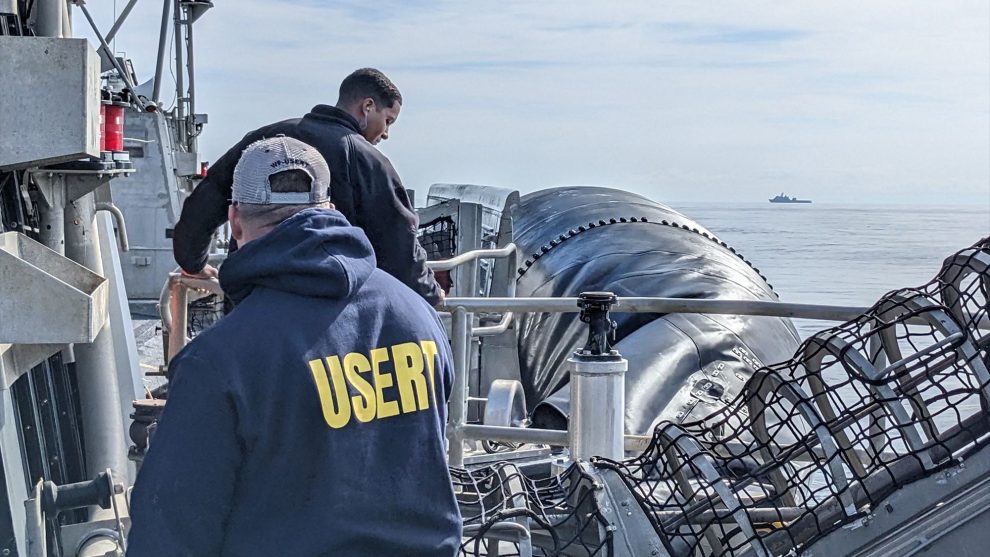The U.S. military has concluded its operation to recover debris from a Chinese spy balloon that flew over the U.S. earlier this month.
The news comes after the U.S. military used an F-22 Raptor on February 4 to take out the spy balloon over the Atlantic Ocean using a single air-to-air AIM-9X Sidewinder missile that was fired at an altitude of approximately 58,000 feet. The decision to shoot down the spy balloon came after President Joe Biden allowed it to fly thousands of miles over the continental U.S.
“Recovery operations concluded Feb. 16 off the coast of South Carolina, after U.S. Navy assets assigned to U.S. Northern Command successfully located and retrieved debris from the high-altitude PRC surveillance balloon shot down Feb. 4, 2023,” U.S. Northern Command said in a statement. “Final pieces of debris are being transferred to the [FBI] labratory in Virginia for counterintelligence exploitation, as has occurred with the previous surface and subsurface debris recovered. U.S. Navy and U.S. Coast Guard vessels have departed the area. Air and maritime safety perimeters have been lifted.”
Biden tried to sound tough when speaking on Thursday about the matter, two weeks after the incident occurred.
“I expect to be speaking with President Xi and I hope we can get to the bottom of this,” Biden claimed. “But I make no apologies for taking down that balloon.”
Subsequent unidentified objects were shot down over Alaska, Canada, and Lake Huron.
“We don’t yet know what these three objects were, but nothing right now suggests that they were related to China’s spy balloon program or that they were surveillance vehicles from any other country,” Biden claimed during his remarks.
Biden claimed that the administration would develop “sharper rules” for tracking objects that enter U.S. airspace and determining potential actions to take against those objects after he allowed the Chinese spy balloon to fly over the U.S. a couple of weeks ago before finally shooting it down off the coast of South Carolina.
Biden said that he wanted the new rules to be able to “distinguish between those that are likely to pose safety and security risks that necessitate action and those that do not.”
Story cited here.
























